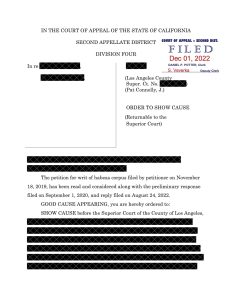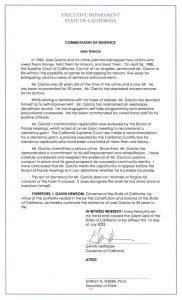On October 8, 2023, California took a significant stride in criminal justice reform with the enactment of Assembly Bill 600, widely referred to as “AB 600”. This legislative development, approved by Governor Newsome, marks a paradigm shift in the state’s approach to resentencing hearings for inmates, introducing the concept of Judicial Initiated Sentencing. In this article, we will discuss AB 600, how it came about, how it works, and what applicants may anticipate if filing for an AB 600 “judicial initiated” resentencing.
Understanding AB 600: An Evolution in Resentencing
AB 600 stands as a pioneering California law designed to augment judges’ discretion in ordering resentencing hearings for inmates serving extended sentences for serious crimes. To grasp the nuances of AB 600, it is crucial to contrast its provisions with the previous legal landscape.
 Los Angeles Criminal Defense and Appeals Lawyer Blog
Los Angeles Criminal Defense and Appeals Lawyer Blog



 In 2019, SB 1437 was enacted, amending Penal Code § 188 and § 189 and creating Penal Code § 1170.95. Pursuant to SB 1437, accomplice liability for felony murder and murder by way of the natural and probable consequence doctrine was substantially changed, allowing individuals convicted to seek to vacate their murder convictions and obtain resentencing relief. Resentencing is available for individuals convicted of murder, attempted murder, and/or manslaughter if they demonstrate:
In 2019, SB 1437 was enacted, amending Penal Code § 188 and § 189 and creating Penal Code § 1170.95. Pursuant to SB 1437, accomplice liability for felony murder and murder by way of the natural and probable consequence doctrine was substantially changed, allowing individuals convicted to seek to vacate their murder convictions and obtain resentencing relief. Resentencing is available for individuals convicted of murder, attempted murder, and/or manslaughter if they demonstrate:









